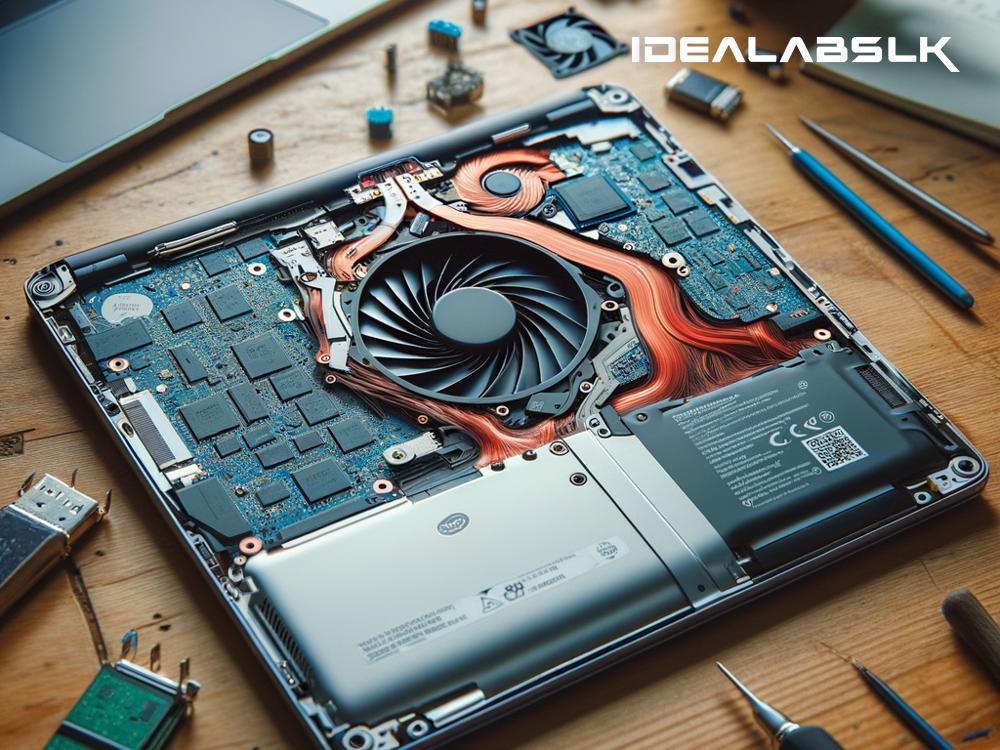How to Resolve 'Laptop Fan Runs at Full Speed Continuously'
Does your laptop fan sound like it's trying to take off every time you turn it on? If your computer's cooling fan is running at full speed continuously, it's not just noisy; it might be an indication that your laptop is working harder than it should. This situation is not only annoying but can also shorten the lifespan of your laptop if left unchecked. But don’t worry, there’s hope! Let's walk through some simple steps to help you resolve this issue and return your laptop to a quieter state of operation.
1. Check for Dust and Debris
The most common reason for a fan to run at full speed is because of the accumulation of dust and debris inside the laptop. Over time, dust can clog the air vents and the fan itself, restricting airflow and causing your laptop to overheat. When the laptop overheats, the fan kicks into high gear in an attempt to cool it down.
Fix: Use a can of compressed air to gently blow out any dust from the laptop's air vents. Be careful not to push the dust further inside. For a more thorough cleaning, you might need to open up your laptop. However, if you're not comfortable doing this yourself, consider seeking professional help.
2. Update Your System
Sometimes, the problem can be due to outdated drivers or BIOS (Basic Input/Output System). An outdated system can cause your laptop to run inefficiently, making the fan work harder.
Fix: Check for system updates regularly. You can easily do this by going to your laptop manufacturer's website or using the update utility that comes with your operating system. Make sure all your drivers, especially those related to the system's hardware (like the BIOS and chipset drivers), are up to date.
3. Check Background Processes
If there are too many applications running in the background, it can cause your laptop to overheat, forcing the fan to work overtime. Sometimes, malware or a virus can also cause excessive CPU usage, leading to similar issues.
Fix: Open your Task Manager (Ctrl + Shift + Esc) and check if there are any applications consuming a significant amount of your CPU or memory resources. If you find any, consider closing them if they're not in use. Additionally, run a full system antivirus scan to ensure that your system is free from malware or other malicious software.
4. Adjust Power Settings
High-performance power settings can make your laptop work harder, which in turn can cause the fan to run at full speed continuously. Adjusting these settings can help reduce the load on your laptop's processor and, consequently, its fan.
Fix: Switch to a more energy-efficient power plan, or customize your current plan's settings to balance performance with energy consumption. In Windows, you can adjust these settings in the Power Options within the Control Panel.
5. Use External Cooling Aids
Sometimes, the internal cooling system might not be sufficient, especially if you're using your laptop for high-end gaming or video editing which are resource-intensive tasks.
Fix: Consider using external cooling aids, such as a cooling pad. These pads have their own fans that help reduce your laptop's temperature and, subsequently, allow the internal fan to slow down.
6. Consult a Professional
If you've tried all of the above solutions and your laptop's fan is still running at full speed, it might be time to consult a professional. There could be a hardware issue, like a malfunctioning fan or thermal paste that needs replacing.
Heading to a professional can also provide you with peace of mind, especially if you're not comfortable opening up and tinkering with your laptop's internals.
While it can be frustrating to deal with a laptop fan that's always on full blast, most of the time, it's a sign that your laptop is just trying to keep itself cool. By following these steps, you can help your laptop manage its temperature more efficiently and quietly. Remember, keeping your laptop clean, updated, and free from unnecessary load can go a long way in preventing this issue from reoccurring. So take care of your laptop, and it will take care of those decibels for you!

